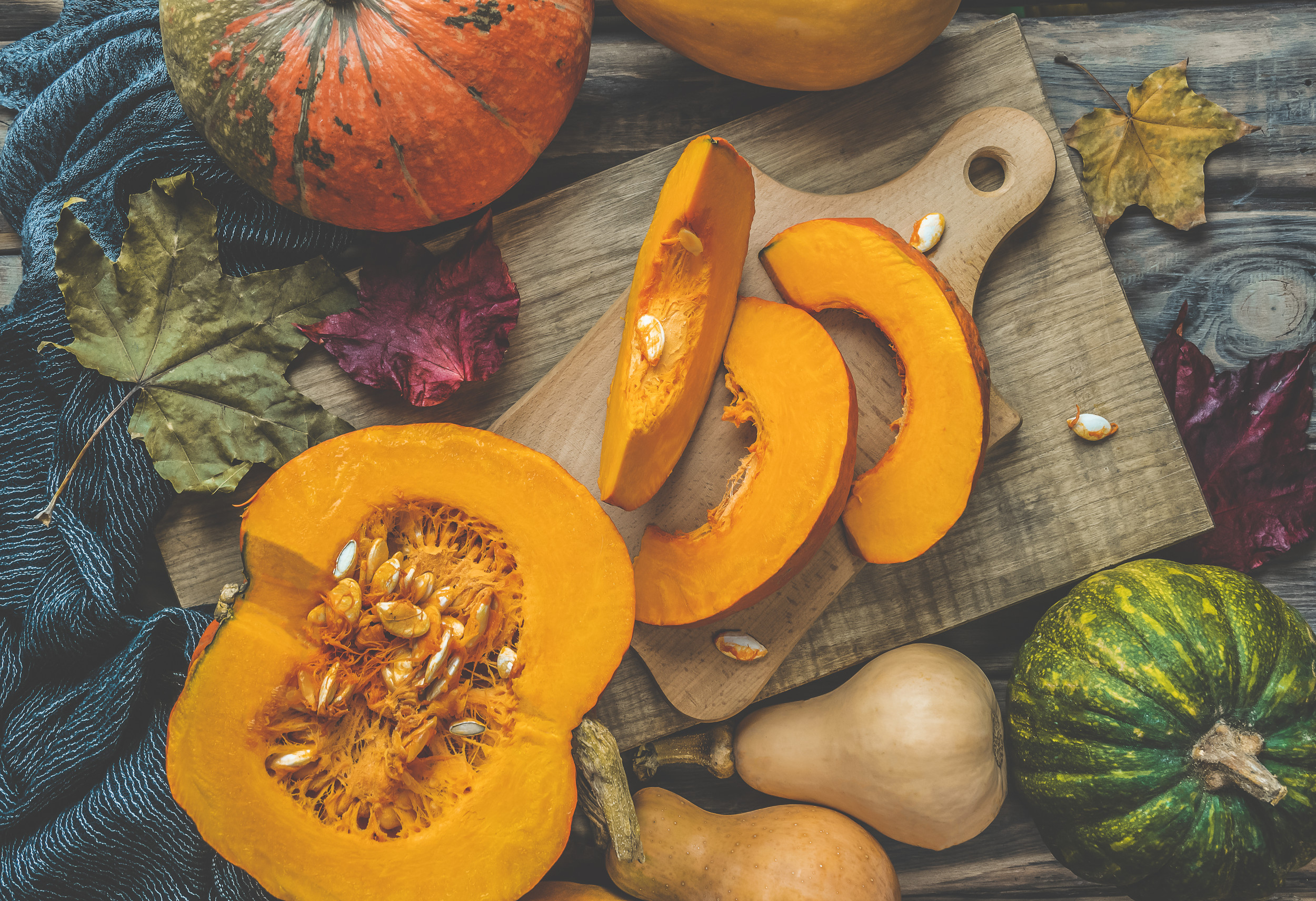
Pumpkins, which we typically associate with spiced lattes and Thanksgiving pies, or just carve into Halloween lanterns while discarding the flavorless flesh, are now being touted by experts as a superfood.
While no one should be surprised to find out that a vegetable is good for them, perhaps it’s time to look at how we eat pumpkins and give them more recognition for what they can do for our health.
“Pumpkin is a nutritional powerhouse, packed with beta-carotene, which supports eye health, and vitamin C, which boosts immunity,” Rakhi Lad, a nutritional therapist at Healthology Hub, told Newsweek. “It’s also rich in fiber for digestion and potassium for heart health and energy. Plus, it’s low in calories and full of antioxidants, making it a great addition to your meals.”
Antioxidants help neutralize free radicals, which are byproducts of chemical reactions, that can cause internal wear and tear and lead to inflammation in the body, a risk factor for multiple diseases including heart problems, obesity and type 2 diabetes.
fotiksonya/Getty Images
A 2022 review of the therapeutic benefits of pumpkin detailed the benefits that might be associated with the squash, saying it’s a “well-known multifunctional ingredient in the diet” that’s full of nutrients, including proteins, carbohydrates, fatty acids, antioxidants and more—particularly if the seeds are eaten too.
It said that pumpkins could play a “significant role” in the management or prevention of diabetes, cancers, liver disorders, heart disease and depression—although much of this is based on observational or animal studies.
Pumpkin seeds, the review said, might enhance male reproductive health, have anti-ulcerative properties, help with wound healing, be antimicrobial, and support serotonin levels in people with depression or anxiety due to high levels of tryptophan.
It described the seeds as “a nutritional powerhouse” and “a weapon in the battle against illnesses,” including arthritis, inflammation and prostate cancer.
For pumpkin flesh, there was some preliminary evidence that it might be helpful for regulating blood sugar levels among people with diabetes.
Charlotte Watts, a nutritional therapist at Charlotte Watts Nutrition, told Newsweek that, while she isn’t keen on pumpkin personally, she knows why some people are.
“It’s quite a good bulker, quite high in soluble fiber,” she said. “The orange colors are carotenoids, which like other squashes are fat-soluble nutrients, so you see them in autumn colors when the green chlorophyll falls away; you see the carotenoids left in the leaves. They’re fat-soluble antioxidants, so they protect fatty areas of the body.”
A study by the Centers for Disease Control and Prevention in 2014 put pumpkin on its list of “powerhouse fruits and vegetables,” above Brussels sprouts, cauliflower, cabbage, carrots, tomatoes, strawberries, grapefruit and blackberries.
However, while an article by dietitian Valerie Agyeman recently called pumpkin a “superfood,” Watts warned against the term.
“I wouldn’t say anything is a superfood, quite frankly, because that’s a word made up ages ago by PR companies to have something to write about,” she said. “It refers to something that’s got really high antioxidant status, which when you dial down to it, most things in the natural world do.”
Watts referred to the ORAC index—Oxygen Radical Absorbance Capacity, measuring a food’s potential antioxidant capacity when outside of the body—which defines pumpkin’s antioxidant capacity as “low.”
Lad suggested trying sage roasted pumpkin, pumpkin soup, pumpkin-spiced porridge, and seasoned roasted pumpkin seeds, instead of coffee-shop pumpkin spiced latte.
She said: “While they may taste festive, they’re loaded with sugar and lack any real nutritional value.”
Do you have a tip on a food story that Newsweek should be covering? Is there a nutrition concern that’s worrying you? Let us know via science@newsweek.com. We can ask experts for advice, and your story could be featured in Newsweek.
